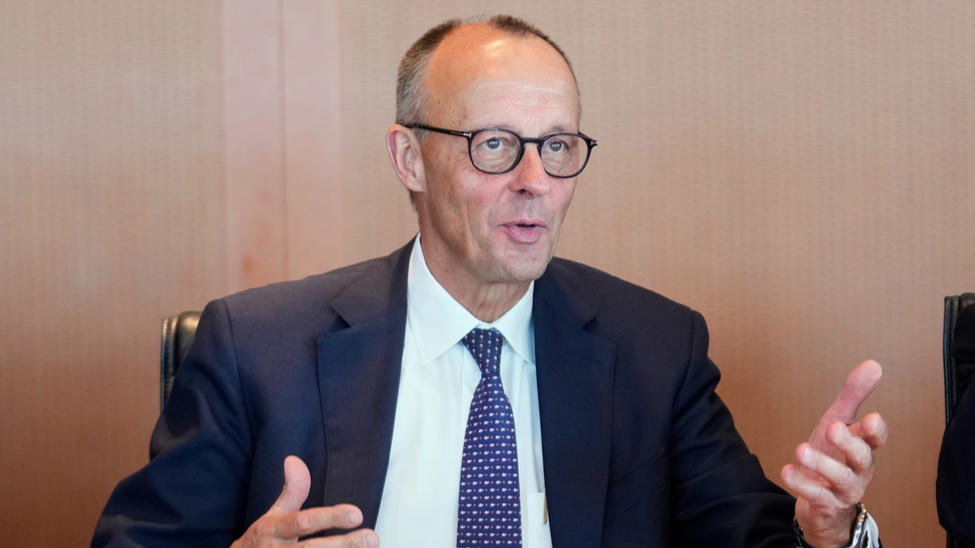
Chancellor Friedrich Merz’s CDU/CSU bloc again slipped behind the far-right Alternative for Germany party in a voter poll, while the German leader’s personal approval rating sank to the lowest level since he took office three months ago.
The Christian Democratic Union and its Bavaria-based Christian Social Union sister party declined one point to 24 percent in the latest Forsa survey for RTL/ntv. The AfD climbed one point to 26 percent, matching a record high it hit in April when it briefly overtook Merz’s conservative alliance.
The Social Democrats, Merz’s junior partners in his ruling coalition, were unchanged on 13 percent, level with the Greens and two ahead of the Left party on 11 percent.
Forsa founder Manfred Guellner noted in a recent analysis that Merz is struggling to convince voters he’s able to make noticeable improvements compared to the previous SPD-led government — especially in areas like migration and the economy.
ALSO READ: Germany unveils massive investment plan to boost economy amid crucial reform
Only 29 percent of the 2,505 voters polled by Forsa between Aug 5 and Aug 11 said they were satisfied with Merz’s performance, down from 32 percent the previous week and a high of 43 percent in June.
“The vast majority of eligible voters feel little or nothing of the announced policy shift and are increasingly losing confidence in both current governing parties,” Guellner wrote.
With Merz, there is also little sign of a “chancellor bonus” for the new head of the government, he added. Many of his predecessors had benefited from such a boost in the polls, particularly Angela Merkel, a fellow Christian Democrat with whom Merz has clashed throughout his political career.
ALSO READ: German chancellor underlines EU's willingness to respond to US tariffs
According to the latest Forsa poll, support for the CDU/CSU has declined from 29 percent when they won February’s national election, while the AfD has increased its support from 21 percent during that time.
Alice Weidel, an AfD co-leader, said in a post on social media that the poll showed voters have “had enough of a CDU/CSU that not only seamlessly continues” the policies of the previous government “but even expands them.”
“Mr Merz has become untenable after just 100 days,” Weidel added.
Germany’s next national election is due in the spring of 2029, but a series of regional elections next year — including a March ballot in Baden-Wuerttemberg — will test the coalition parties’ support with voters.


